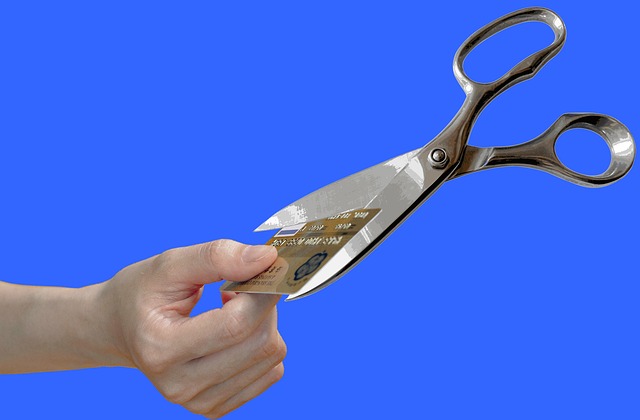Quick Approval Credit Cards: What You Need to Know Before Applying
Before applying for a quick approval credit card, it's essential to fully understand the approval process, eligibility requirements, and potential benefits. By knowing what factors influence your approval chances, you can make an informed decision and avoid common pitfalls. Learn how to navigate the application process and choose the right card that fits your financial needs, all while improving your chances of getting approved quickly.

When you need access to credit quickly, quick approval credit cards can seem like an ideal solution. These financial products are designed to provide applicants with near-instant decisions, sometimes in as little as 60 seconds after submission. While the speed is attractive, it’s important to understand the mechanics behind these approvals, what factors influence your chances, and how to avoid common mistakes that could derail your application.
How Quick Approval Credit Cards Work
Quick approval credit cards leverage automated underwriting systems that analyze your credit profile in real time. When you submit an application online, the issuer’s algorithm instantly pulls your credit report and evaluates key metrics such as your credit score, debt-to-income ratio, recent credit inquiries, and payment history. This technology allows lenders to make decisions without manual review in many cases.
The approval process typically unfolds in stages. First, the system performs a soft or hard credit check depending on the application stage. Then it assesses whether you meet minimum eligibility requirements, including income thresholds and credit score benchmarks. If you pass these initial filters, you may receive instant approval. However, some applications require additional verification, which can extend the timeline to a few business days. It’s worth noting that instant approval doesn’t always mean instant card access—physical cards still need to be mailed, though some issuers offer immediate virtual card numbers for online purchases.
Key Factors for Getting Approved Quickly for a Credit Card
Several elements significantly influence your likelihood of receiving quick approval. Your credit score stands as the most critical factor, with most quick approval cards requiring scores in the fair to excellent range, typically 580 or higher. Lenders also examine your credit utilization ratio—the percentage of available credit you’re currently using. Keeping this below 30 percent demonstrates responsible credit management.
Your income level matters as well, as issuers need assurance you can repay borrowed amounts. Recent credit inquiries can raise red flags; multiple applications within a short period may signal financial distress. Additionally, your existing relationship with the card issuer can work in your favor—current customers often enjoy streamlined approval processes. Employment stability and housing status also factor into the equation, though these carry less weight in automated systems.
Common Mistakes to Avoid When Applying for a Credit Card
Many applicants inadvertently sabotage their chances by making preventable errors. One frequent mistake is applying for multiple cards simultaneously, which generates numerous hard inquiries and can temporarily lower your credit score. Each hard inquiry typically reduces your score by a few points, and multiple inquiries suggest desperation to lenders.
Providing inaccurate or incomplete information represents another pitfall. Misreporting your income, whether intentionally or accidentally, can lead to immediate denial or future account closure. Failing to review your credit report before applying is equally problematic—errors on your report could result in rejection, yet these mistakes are often easily correctable through dispute processes.
Applying for cards beyond your credit profile is also common. If you have fair credit but apply for premium cards requiring excellent credit, you’re setting yourself up for disappointment. Additionally, ignoring pre-qualification tools means missing opportunities to gauge approval odds without affecting your credit score.
Benefits and Drawbacks of Quick Approval Credit Cards
Quick approval credit cards offer several advantages. The most obvious benefit is speed—you can receive a decision within minutes and potentially start using credit the same day through virtual card numbers. This proves invaluable in emergencies or when you need to make time-sensitive purchases. The streamlined application process is also less cumbersome than traditional methods, requiring minimal documentation upfront.
However, these cards come with notable drawbacks. They often carry higher interest rates compared to cards requiring longer approval processes, as issuers price in the risk of faster decisions. Annual fees may be steeper, and rewards programs might be less generous. The credit limits assigned are frequently lower initially, particularly for applicants with fair credit. Additionally, the convenience of quick approval can encourage impulsive applications without proper comparison shopping, potentially leading to suboptimal card choices.
How to Improve Your Chances of Approval
Strategic preparation can significantly boost your approval odds. Start by checking your credit report from all three major bureaus and disputing any errors at least 30 days before applying. Pay down existing balances to lower your credit utilization ratio—even small reductions can make a difference.
Consider using pre-qualification tools offered by most major issuers. These perform soft credit checks that don’t impact your score while providing insight into which cards you’re likely to be approved for. Timing matters too—avoid applying during periods of financial instability or immediately after other credit applications.
If you’ve recently been denied, wait at least six months before reapplying to allow your credit profile to strengthen. During this time, focus on building positive payment history and reducing debt. For those with limited credit history, becoming an authorized user on someone else’s account or obtaining a secured credit card can establish the track record needed for approval.
Some applicants benefit from applying for cards from issuers where they already have accounts, as existing relationships can facilitate approval. Additionally, being realistic about which cards match your credit profile prevents wasted applications and unnecessary hard inquiries.
Conclusion
Quick approval credit cards provide convenient access to credit with minimal waiting, but they require careful consideration before applying. Understanding how automated underwriting systems evaluate applications, recognizing the factors that influence approval decisions, and avoiding common mistakes can dramatically improve your chances of success. While these cards offer speed and convenience, they may come with higher costs and less favorable terms than alternatives requiring longer processing times. By preparing your credit profile, using pre-qualification tools, and applying strategically, you can maximize your approval odds while securing a card that genuinely meets your financial needs. Remember that quick approval should never come at the expense of finding the right credit product for your long-term financial health.




